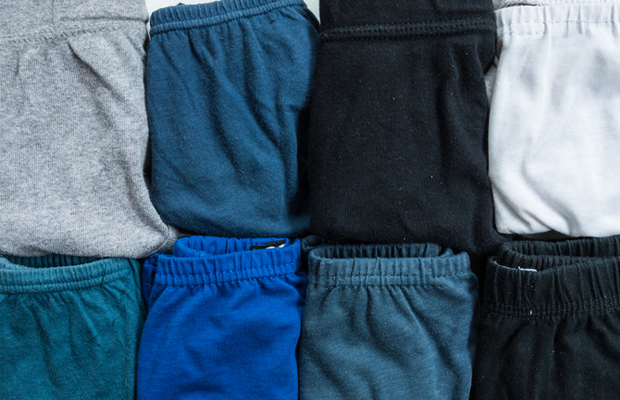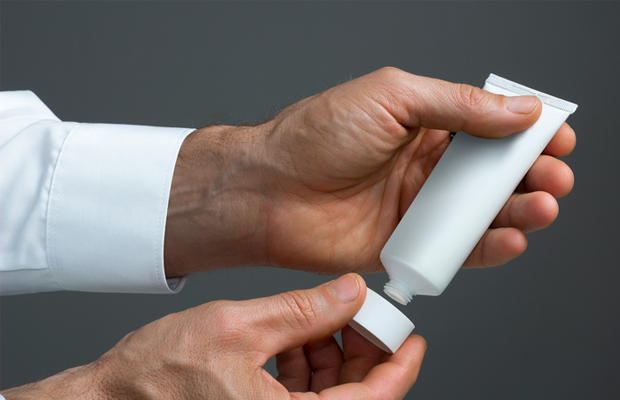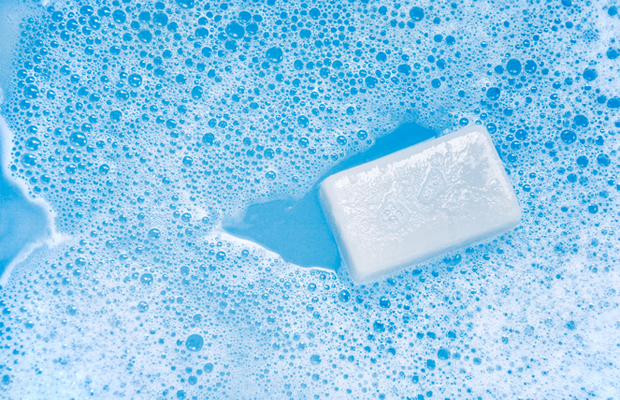[unable to retrieve full-text content]


[unable to retrieve full-text content]

We’ll get straight to the point: You need to keep your junk fresh. You need to prevent fungal infections. You need to prevent chafing and itching. You need to keep your balls ventilated and your hair trimmed.
Read more: 10 things you didn’t know about your penis (and balls)
But it can mean far more than just showering, too. There are some things soap can’t fix, but that can be solved with other preventative measures.
Your testicles stay tucked inside a dark, damp chamber all day. It can be a prime breeding ground for fungus, yeast and more. For that, you need a lineup of powders, creams, soaps and even the right underwear fabric to minimise the threat.
We spoke with dermatologist James Collyer about the topic. He’s the medical director at Modern Dermatology in Seattle and specialises in men’s skincare concerns.
Here are Dr Collyer’s suggestions for keeping everything clean, fresh, smooth and, above all, healthy.
1. Wear the right underwear
Cotton seems like the obvious fabric choice, but Dr Collyer says it might magnify any already persistent perspiration problems.
“Cotton is not great for ventilation,” he points out. “Though, boxer briefs and boxers tend to be better than briefs for ventilation.” So, avoid briefs if you insist on cotton.
If you want the best sweat-wicking, anti-microbial fabric, then Dr Collyer suggests microfibre.
“It tends to breathe well, and any mesh areas in the groin will keep air moving through.”
In other words, no accumulation of moisture, and it’s an unfavourable environment for bacteria that’s favourable for you.

Read more: The truth about how your underwear affects your sperm
2. Consider starting the day with powder
A moisture-absorbing powder will keep your nether region dry throughout the day, thus preventing the sweat accumulation that leads to infections, odour and chafing.
And you’ve got two main choices: talcum or starch-based.
“Talcum-based products tend to work longer against perspiration than corn starch-based products,” Dr Collyer says. He suggests finding a powder with antifungal properties, too.
Read more: 6 things you need to know before you go commando
3. And, should you need it, have an antifungal cream at the ready
“Jock itch is caused by yeast and fungus,” Dr Collyer says. It grows in the damp, poorly ventilated crotch area. “You need an antifungal cream to kill this infection,” Dr Collyer says.
Apply the cream once or twice daily for one to two weeks, until any sour smells and itching resolve.

Read more: 9 problems with your crown jewels you can prevent
4. Never let sweat linger
This is obvious, but still necessary: “Always shower after workouts,” Dr Collyer says. “Don’t sit in sweaty clothing and always wear clean underwear.”
Lots of infections are caused by the bacteria nesting inside your underwear or gym shorts, and you should minimise the time they spend on your body, since the bacteria can multiply and migrate quickly.
Read more: 5 scientific reasons you should be sleeping butt naked tonight
5. Wash with moisturising bar soap
Dr Collyer says to avoid exfoliators, scrub brushes and loofahs when showering, because they can irritate the skin – and the testicle skin is sensitive.
“Use a standard, nourishing bar soap,” he says. He always tells his patients to stick with Dove, since it moisturises while also killing germs.

Read more: Does your penis smell?
6. And keep everything trimmed… but not too trimmed
There are hygienic benefits to trimming your balls.
“Hair can harbour odour and some different forms of bacteria,” Dr Collyer says. “However, pubic hair also helps decrease friction,” so you should leave some hair, even if you’re going to trim it shorter.
Leave anything from a centimetre to an inch if you want a trim-but-not-too-trim result.
Don’t use anything besides an electric trimmer on your junk, and avoid putting it right on the skin, since it’s easy to get nicks and to experience irritation on the thin skin.
Read more: Here’s how to manscape your taint
This article was originally published on www.menshealth.com
Image credits: iStock

MPs are told of 120 serious incidents involving ambulance delays so far this winter.
Seventeen women are contacted after samples were reanalysed following issues with a lab service.
An MP weeps as she tells how not being able to register her stillborn daughter has left her devastated.
A small village in rural Eastern Cape was shaken up after more than 50 people, displaying similar gastro-like symptoms, were admitted to hospital.
It’s believed that the Mpoza village patients all consumed meat from a cow which had been allegedly bitten by snake.
Department on high alert
Eastern Cape Department of Health spokesperson, Sizwe Kupelo, said that the patients were transported to hospitals in Mthatha, which is more than four hours’ drive from the village.
Kupelo told Health24, “Fortunately, there are no casualties, but we have launched an investigation into the cause and taken blood samples to be analysed.
“The Department remains on high alert, however, because we aren’t sure if there are any other people who may be ill. Some people display symptoms immediately, while for others it may take longer.”
Kupelo says that health officials have classified the cases as food poisoning, while ruling out Listeria.
Was it the venom or bad meat?
The possibility that the cow was bitten by a snake isn’t necessarily a valid factor either. Herpetologist and Executive Director for Biodiversity at Cape Nature, Dr Ernst Baard told Health24 that in his opinion it is highly unlikely that people were affected by the venom and that it’s more likely that the meat was off.
“Potentially, any large venomous snake such as cobras and puff adder can inject sufficient amounts of venom during a bite to kill a large mammal like a horse or cow.
“However, unless a human has a serious stomach or mouth ulcer where venom could enter the bloodstream, the ingestion of snake venom is mostly not dangerous.”
“Snake venom is a complex protein and are broken down by intestinal processes and substances,” said Baard.
Don’t eat risky meat
A leading toxicologist who prefers to remain anonymous, confirmed Dr Baard’s sentiments with regards to human beings ingesting snake venom, “It is highly unlikely that those people were affected by venom in the meat; the meat had probably gone off.”
She also urged people to not put themselves at risk by eating meat that hasn’t been properly preserved or prepared.
In the wake of the recent Listeriosis outbreak, South Africans have been urged to be cautious and take extra care to wash and cook food thoroughly,
While the Listeria bacterium is predominantly found in contaminated soil, water and vegetation, it may also be found in cattle, milk and poultry.
Image credit: iStock

The advanced form of IVF aims to prevent genetic diseases being passed to children.
You’ve heard of people cutting out sugar to make their skin look better. And you may have even heard the term “gluten face” used to describe puffy, inflamed or red skin.
But can certain foods actually make your complexion worse? It’s the subject of a lot of debate in the scientific and wellness community.
So, we sat down with board-certified dermatologist Dr Laurel Geraghty to get some answers.
Dr Geraghty says that there is some connection between diet and skin – with some caveats.
“The best evidence we have so far suggests that what is called a high-glycemic index diet could actually worsen acne in people prone to it,” she says.
A high-glycemic index diet is one that’s heavy in simple carbohydrates (like white rice, pasta and bread). Because these carbohydrates are already pretty close to sugar, your body doesn’t require a lot of energy to process them, leading to a spike in blood sugar and then a crash.
It’s unclear exactly why high-glycemic foods have this effect on acne-prone skin (and these foods certainly don’t cause acne) but research has shown that eating lots of these kinds of foods could contribute to breakouts if you’re already an acne sufferer.
Read more: This healthy food might actually be causing your acne
As for dairy products, De Geraghty says that there is some evidence to suggest that certain types of dairy can cause acne flare-ups in acne-prone skin. While there is not a ton of research yet out on the subject, she says that the most recent studies seem to indicate that skim milk might be worse for the skin than higher-fat milk.
However, she says that dermatologists don’t recommend anyone dramatically change how much dairy they’re eating just because of their skin – especially since dairy has so many important nutrients essential for young women.
Keep in mind that both of these foods seem to only adversely affect people who already have problems with acne. If you don’t have acne at all, don’t cut these foods out of your diet for the sake of your skin.
“You could have a terrible diet and no acne, or you can have a perfect diet and break out,” Dr Geraghty says. “But if you are one of those people who tends to break out, it’s a good idea to maybe adopt one of these low-glycemic index diets to help your skin, and maybe avoid excess dairy as well.”
One thing you definitely don’t need to worry about: gluten.
“So far there’s no compelling research that I’ve seen that’s persuaded me that gluten has anything to do with acne,” she says. “So if you like gluten, don’t make yourself crazy!”
Read more: 10 glaringly obvious signs you have a food allergy or intolerance
This article was originally published on www.womenshealthmag.com
Image credit: iStock

We’ve been told repeatedly that, to delay the arrival of #DayZero, we need to cut down on our water consumption.
While most households are doing their bit, many businesses are suffering as they try to put contingency plans in place to best cope with the water shortage.
Especially abattoirs are having a hard time since they require enormous quantities of water for facilities to function. They are governed by not only the stringent hygiene and safety standards set for them by various governing bodies, but by their own policies as well.
Water’s not a luxury, it’s essential
Managing Director for the Tomis Group, Laurie Terblanche, told Health24 that water is the lifeline of abattoirs and cleaning and sanitation is part of Good Manufacturing Practice.
Terblanche said, “Water is required and essential to follow the necessary personal hygiene, cleaning and sanitation programmes. It’s also essential for the production of items like sausage and burgers.
“Personal hygiene and cleaning and sanitation programmes ensure the microbial load is within specification and eliminates risk of any pathogens, like Listeria, from growing. Lairages (holding pens for animals) need to be cleaned regularly and animals must be provided with clean, fresh drinking water.
“Hygiene is a non-negotiable when it comes to safe meat, whether carcasses or any other production meat. This is not something anyone can compromise on.”
Enormous water bills
Many abattoirs have had problems with water over the last few months. It’s almost impossible for these businesses to cut down or stay within prescribed limits of water usage, and because of this they have been confronted with enormous water bills every month.
Deon Grobbelaar, Managing Director for the Groenland Abattoir in Grabouw, told Health24 that their business is suffering with the water restrictions and drought.
“We have enormous water bills that we have to pay at the end of the month. It’s tens of thousands of rand just for water for us to function normally.
“We’re fortunate in that we’re not too big an abattoir and we do have a few quieter periods compared to other abattoirs, but in general, we’re all suffering,” said Grobbelaar.
Borehole water
Going forward, Terblanche and Grobbelaar mentioned using boreholes to source water for the business to go ahead as effectively as possible.
Terblanche said: “We have two boreholes as a contingency plan. We also have a chlorination and filtration treatment plant.”
“All water is monitored daily and tested by a third party accredited lab to ensure safe water which is pathogen-free and safe to use in the factory.”
Strategic planning and development
Spokesperson for Worcester Abattoir, Abie van Zyl, told Health24 that the threat of being without water is a major problem, but they are still in the consultation process.
Van Zyl said, “We are not at the stages of implementation yet. While we are doing our best to manage our use of water accordingly, it’s extremely challenging – looking at how we could possibly mitigate the possible damages and losses we may experience because of this drought.
“The directors of the abattoir and I are considering crucial issues and important factors when it comes to water usage, and we are discussing how we can maintain our standards, even though we’re operating with very little water. We have to.”
What are your concerns around food hygiene and safety once #DayZero arrives? Share your thoughts or advice on healthnews@health24.com and we may publish your comments. Please tell us if you prefer to remain anonymous.
Image credit: iStock
NEXT ON HEALTH24X
